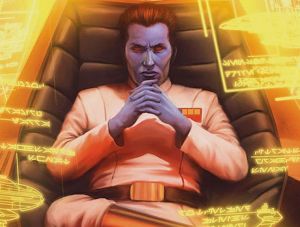Worth a Look: Video Game Criticism Edition
- “In Defense of Mass Effect: Andromeda and Other Messy Games” by Sophia Park via Polygon
Mass Effect: Andromeda stands as one of the most derided games of this generation. It’s to the point that Bioware said publicly that it’s no longer supporting it a mere five months after the game’s release. While I think the game is, indeed, very different from the previous Mass Effect games and, without a doubt, needed a few more drafts with the script, it was by no means a terrible game. If separated from the Mass Effect context––and when considered with all of its animation/texture/gameplay patches––it suffers from the deadliest of video game diseases: it ended up being a game that was just “fine.” Nothing stellar, nothing terrible, things that make it forgettable in the sea of games to get either quite excited about or quite angry about.

Though I may be biased because I enjoyed the game (aware of all of its flaws), I think Park’s ostensible defense of the game makes a very strong point not only about Mass Effect: Andromeda, but also about criticism in general. For those participating in the conversation around video games, both professional and amateur (though this line is blurring more than ever), a general agreement seems to be that to be “critical” means to look for what’s bad and point it out. I’ll grant some leeway because a lot of professional critics are playing these games during abbreviated periods for review purposes, so the bad stuff stands out even more. With a game like Mass Effect: Andromeda, it has the added burden of being a new entry in a highly venerated video game series, so expectations for the game were set a bit higher than other games. That doesn’t mean that it doesn’t have qualities worth discussing, remembering, and celebrating, and part of that, at least as Park argues, is because of gaming criticism’s relative youth:
We don’t yet have a critical structure that supports or fosters an appreciation of the misapplication of game language that causes “messiness.” And this is a major problem.
With that in mind, there is a trend away from more traditional reviews into a more personal or culturally critical look at a game. These are more critic-friendly because they don’t really need to be ready by the game’s release (although such timeliness is beneficial for SEO purposes), and such investigations allow the critic to step back from the game and take a more holistic approach to judging a game. Whether Mass Effect: Andromeda deserves or will even get that chance is up to history. At the very least, I hope future games––be they new installments in venerated franchises or new IPs––get the chance to be examined with a genuinely critical eye rather than just a score disguised as a conversation.
- “Episode 44: Gears of War” by Bullet Points (ft. Ed Smith, Reid McCarter, and Patrick Lindsey)
Instead of an article, this is an episode from the generally fantastic critical podcast, Bullet Points, where (at least) three games journalists record their thoughts of a video game they all played to write about and talk about for their website. Each episode is accompanied by articles written by the contributors and they’re always very thoughtful and insightful.
However.
This episode, where they look back on Epic Games’ Gears of War (the first installment), is an absolute disaster in the best possible way. In the hour-and-a-quarter episode, they spend about fifteen minutes total discussing the game and, instead, slam critical views together like rams over a ewe. The conversation devolves into an argument about how to read the game, critically. One wants to look at the mechanics and render judgment based on those while another wants to look at the game’s place in a historical context. And, in this conversation, the twain never meet.

Throughout the entire fight, I found myself talking out loud as I listened while walking my dog one morning, hoping my mediation would travel through my headphones, up the RSS feed, and back through time so they could actually realize what it was they were fighting about. While it seemed like they were disagreeing about the quality of the game, the discourse on display was actually a fundamental lack of understanding when it comes to critical analysis. There is no one thing called “analysis” and that’s what everybody does. We have developed different ways to look at the same thing––be it Deconstructionism, Structuralism, Formalism, Feminism, Marxism, and so on. Look at something like Catcher in the Rye through a Structuralist lens will give you a very different argument than if you looked at it through a Feminist lens. And that’s okay. They all coexist. However, the static that can be caused by the lack of agreement on which one to use while looking at a text can lead to an actual halt to discourse and then nothing gets done, as is the case on this podcast episode.
The clashing ideologies between the two journalists was basically a fight between New Criticism vs. New Historicism, but the entire episode propels along a single question that, in itself, is quite interesting: can dumb texts be worth talking about critically? Also, can texts still be important when authorial intent is ignorant, dubious, or manufactured? I’d like to hear the podcast where they discuss that. Maybe more would get done.

